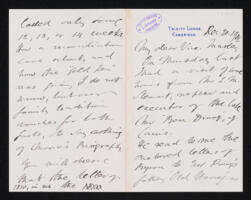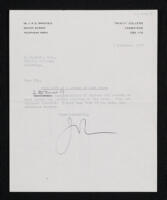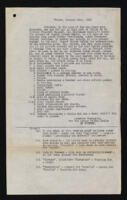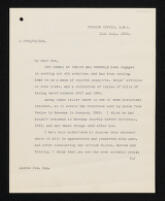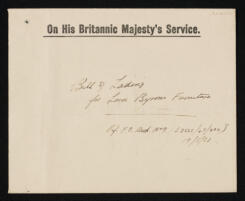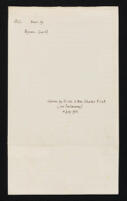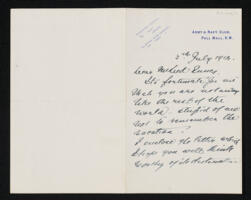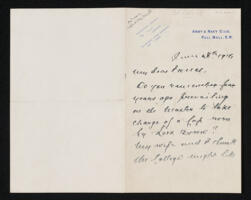Class R is the Wren Library repository of manuscripts for all those works which could not be classed as theological. As a consequence, the class is a miscellaneous assortment representing many fields, particularly history, poetry, philosophy, law, natural science, medicine, and music. The contents of Class R were described in 1901 by M. R. James in the preface to volume II of his catalogue of Western manuscripts in Trinity College Library, which may be viewed online: https://mss-cat.trin.cam.ac.uk/manuscripts/uv/view.php?n=vol.2#?c=0. A searchable version of the James catalogue may be found online: https://mss-cat.trin.cam.ac.uk/
The manuscripts listed in this catalogue are those modern manuscripts in R with strong connections to materials housed elsewhere in the library, particularly in Additional Manuscripts. Where James did not provide a description in his catalogue, a description has been provided. Where the James catalogue entry is detailed, a pointer record has been created in this catalogue to highlight the entry in the James catalogue. It should be noted that there are gaps in the numbering scheme of items on the shelves, and that the cataloguing of these materials is a work in progress.
Sans titre